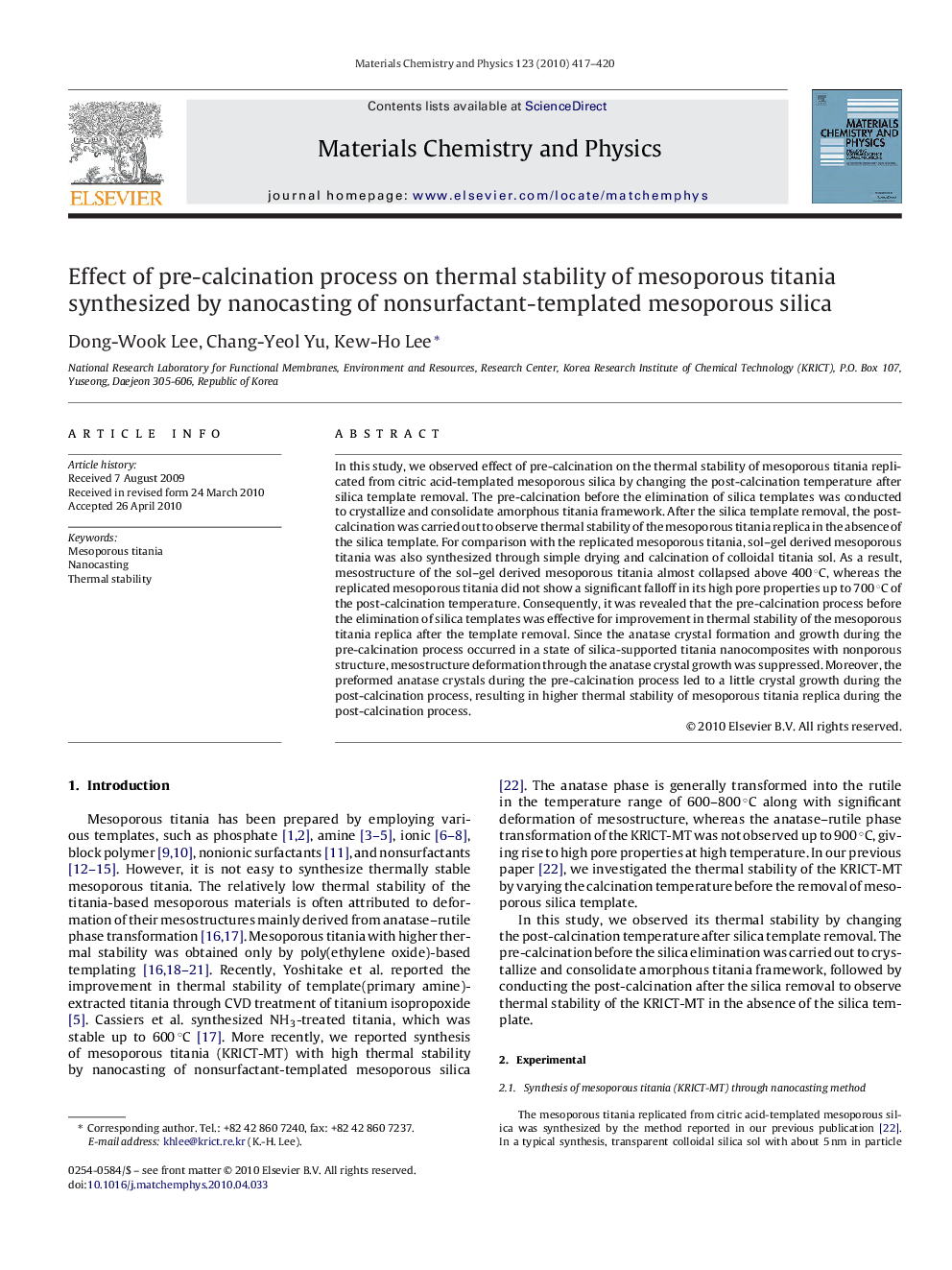| Article ID | Journal | Published Year | Pages | File Type |
|---|---|---|---|---|
| 1525182 | Materials Chemistry and Physics | 2010 | 4 Pages |
In this study, we observed effect of pre-calcination on the thermal stability of mesoporous titania replicated from citric acid-templated mesoporous silica by changing the post-calcination temperature after silica template removal. The pre-calcination before the elimination of silica templates was conducted to crystallize and consolidate amorphous titania framework. After the silica template removal, the post-calcination was carried out to observe thermal stability of the mesoporous titania replica in the absence of the silica template. For comparison with the replicated mesoporous titania, sol–gel derived mesoporous titania was also synthesized through simple drying and calcination of colloidal titania sol. As a result, mesostructure of the sol–gel derived mesoporous titania almost collapsed above 400 °C, whereas the replicated mesoporous titania did not show a significant falloff in its high pore properties up to 700 °C of the post-calcination temperature. Consequently, it was revealed that the pre-calcination process before the elimination of silica templates was effective for improvement in thermal stability of the mesoporous titania replica after the template removal. Since the anatase crystal formation and growth during the pre-calcination process occurred in a state of silica-supported titania nanocomposites with nonporous structure, mesostructure deformation through the anatase crystal growth was suppressed. Moreover, the preformed anatase crystals during the pre-calcination process led to a little crystal growth during the post-calcination process, resulting in higher thermal stability of mesoporous titania replica during the post-calcination process.
